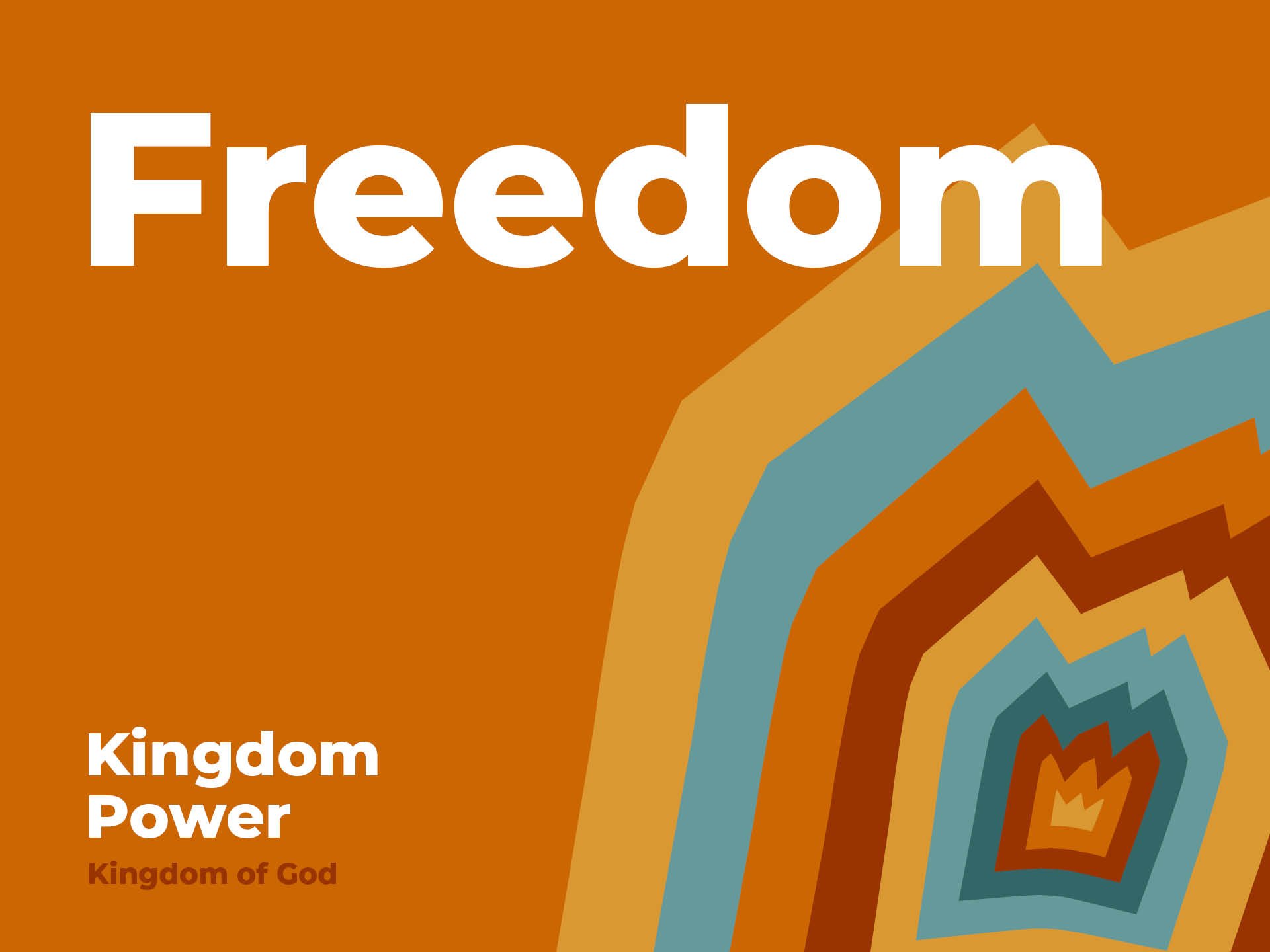Freedom
About this series:
The kingdom of God is not a static subject, but a dynamic reality. The presence of God and his reign with his people makes an experiential difference and while that should be clear throughout the whole series, this section should especially emphasise that. Martyn Lloyd Jones’ comment about this is helpful: ‘The Christian life after all is a life, it is a power...That is the thing we so constantly tend to forget. It is not just a philosophy, it is not just a point of view, it is not just a teaching that we take up and try to put into practice. It is all that, but something infinitely more.
The topics we’ll cover are (though not necessarily in this order -please see further below):
Power (introduction - the Christian life is a life of power!)
Healing: theology
Healing: practice
Gifts: prophecy
Gifts: speaking in tongues
Salvation
Freedom
Suffering
The reason for including a week on suffering is that, as God said to Paul, "My grace is sufficient for you, for my power is made perfect in weakness" (2 Corinthians 12:9). We all know that one of the greatest evidences of God's kingship as displayed in the life of his people is his power that sustains us when we suffer - it's definitely a mark of his reign.
About this talk:
Paradoxically, the Christian is both free and a slave; he / she has been released from one allegiance and bound to another. Because freedom is such a significant word in modern, western culture, the vital issue for us is to understand what we, as Christians, are free from and what we have been freed for. It is not true to simply say that we are free in the sense that our culture understands it - the right to not be subject to any external restrictions, the power to do as one wants. So, what does the New Testament mean by the Christian’s freedom?
The Christian has been freed from sin, Romans 6 - “anyone who has died has been set free from sin” (v 7); “You have been set free from sin” (v 18); “But now that you have been set free from sin” (v 22). Through faith in Jesus Christ, we have been set free from the power and penalty of sin - it is no longer our controlling mechanism because we, “do not live according to the flesh but according to the Spirit” (Romans 8:4) and we are no longer subject to its penalty, death, because though, “the wages of sin is death (which Jesus has paid for us)...the gift of God is eternal life in Christ Jesus our Lord.”
The Christian has been freed from the reign of darkness: “For he has rescued us from the dominion of darkness” (Colossians 1:13). Freed from the curse of the law, in that it rightly condemned us as guilty: “Christ redeemed us from the curse of the law by becoming a curse for us, for it is written: ‘Cursed is everyone who is hung on a pole’” (Galatians 3:13). Freed from fear because we are supremely loved and completely safe: “There is no fear in love. But perfect love drives out fear, because fear has to do with punishment” (1 John 4:18).
And at the same time we must also understand what the Christian has been freed for. When the New Testament talks about the freedom of the Christian it means, ‘not freedom to do what you like, but freedom from all the things that stop you being the person God wants you to be...It is always freedom for: for the Messiah, for God’s people, for those who need the gospel’ (N. T. Wright). So in Romans 6, just as Paul says that we have been set free, at the same time he says we, “offer [our]selves to God” (v 13), “have become slaves to righteousness” (v 18) and, “have become slaves of God” (v 22).
Christian freedom, therefore, is found, paradoxically, in obedience, in surrender, in bowing to the one who alone can meet our deepest needs and can lead us to flourish in the ways he designed us to. Freedom is found not in the absence of rule and governance, but in submitting to the rule and governance that designed us and therefore knows how we flourish.
Which is the New Testament context in which Galatians 5 fits. Verse 1 acts as a summary of what Paul has just been saying in chapter 4: in his argument against those who want to add obedience to the Mosaic law to their life in Christ, Paul explains how that very law pointed to freedom from it and concludes, “It is for freedom that Christ has set us free. Stand firm, then, and do not let yourselves be burdened again by a yoke of slavery (the one he’s been writing about in ch 4).”
So, given that Christ has set them free from the demands of the law, they should not allow themselves to come back under that law. But neither should they use their freedom as a route to sin: “You, my brothers and sisters, were called to be free. But do not use your freedom to indulge the flesh” (v 13). Rather, just as their freedom should lead to love for God, it should also lead to love for people: “rather, serve one another humbly in love.” It is freedom from sin and freedom for God and for people.








